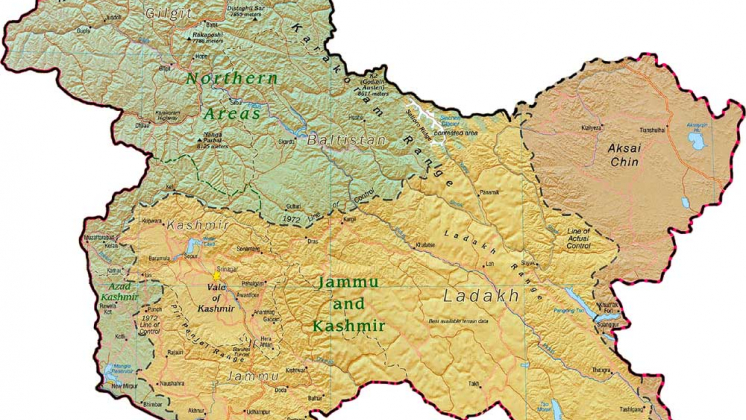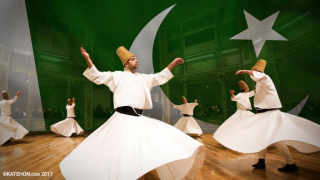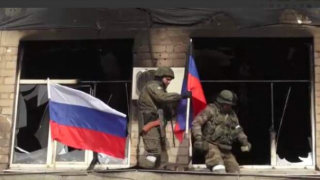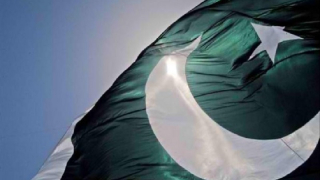Why the stalemate of Kashmir has no gun solution?
09.12.2019
Rooted in the implications of post partition subcontinent, different stakeholders have presented their possible solutions to find a way out of the impasse of Kashmir conflict. The Kashmiri masses having remained empty handed till today and disappointed of the political struggles, have a convinced portion of younger generation that believe if there is only one solution, that is gun solution!
Pakistan’s support for the militancy in Kashmir – justified by keeping in mind India’s role in backing up the Bengali freedom fighters – that started in late 80s, was indeed a factor for the spread of militancy during 90s, but no one can deny the profound domestic causes of such a move.
Last 3 decades has also proven than in spite of ups and downs in the militancy of Kashmir, this element has never been irrigated totally and always there have been turning points. The militancy started after the turning point of the so-called rigging in the legislative assembly election of 1987 in Jammu and Kashmir, resulting in the 1st wave of Kashmir’s insurgency that was declined due to the global anti-terrorism propaganda of post 9-11-2001, putting great pressure on Pakistan to stop the training camps of Kashmiri militants.
Again, it was 2008 and the nonviolent agitation of the Kashmiri people being crushed by the iron fist of India, resulted in the 2nd wave of militancy in Kashmir. The popular Kashmiri militant, Burhan Wani being gunned down on July 2016, stimulated the 3rd wave of the insurgency in Kashmir, motivating even educated youth to leave the pen and university and to choose gun and jungle.
So, based on this sin-wave prototype of the militancy in Kashmir, there is no doubt that the recent act of the central government in abrogation of the article 370 and dividing the state in to a couple of Union Territories along enormous series of arrests and panic spread across the vale, will emerge the 4th wave of militancy.
Someone should be quite naive to trust the seductive reports of some Indian media based on the claims of officials in Jammu and Kashmir about a decline in the militancy rate after the abrogation of article 370 on 4th August 2019. The same reports confirm that the infiltration during the post abrogation pried has increased even if the encounters and operations are decreased.
All the above, is the militancy in any way helpful to the cause of Kashmir and its prospect?
Here are three reasons that one should review before considering any role for the militancy in resolving the Kashmir conflict:
- 1st: The initial principal of the guerilla war has always been existence of a lifeline to the basement outside the operation zone and for the case of Kashmir, this outside was, is and could be only Pakistan. Being under tremendous pressure for supporting so called terrorism in Kashmir, Pakistan has given up so much of its pro-militancy policies albeit trying to keep them on underground. Furthermore US-Pak ties on the war against terrorism, has made even its underground policies vulnerable regarding Kashmir militancy as well. This fact is even reflected in one of the audio tracks released by Hizb-ul-Mujahedeen commander in Kashmir Riyaz Naiko that not only they do not receive support as before from Pakistan but security infiltration of India starts just from the very basement of the militants in Muzaffarabad. Such a shift is more sensible after Imran Khan and his Insaaf party taking the power in Pakistan, refraining explicitly the Pakistani youth from crossing the border (LoC). Thus, for those believing in militancy, it should be clear that there is not such a backup from Pakistan anymore and this is one of the causes of the second reason as follows.
- 2nd: Global Jihad phenomena is now a real global issue. It started from Afghanistan, migrated to Iraq and the levant and now roaring around to find its next possible destination. Global Jihad is the result of a complex political-social and domestic-international challenges that the Muslim nations are dealing with. Suppression of a nation for 7 decades, being overlooked by the whole modern world and humiliated by the bulk of an alien army in all the forms, has made them supersensitive towards any supportive voice, be it Al-Qaida or ISIS not knowing they themselves could be the victims of their presence in vale.This social-political fact has been repeated in the contemporary history of Kashmir when tribesmen from Pakistan were moving forward on Oct 1947 along the Jhelum valley road and being welcomed by the people of Kashmir who were suffering deeply from the oppressions of the Dogra rule on Muslims of the vale though they themselves were slaughtered by the same tribesmen later in Baramulla. Amid the such context, any fresh wave of militancy in Kashmir could be diverted by the Global Jihadists and for that there is no need of Arab-Afghan fighters to infiltrate. Kashmir itself can be enough fertile for giving birth to such sort of insurgency that serves no one except New Delhi.
- 3rd: As mentioned above, militancy is not a fresh option on the table of Kashmiri Azadi (freedom) seekers. It has been always on the table and one may raise this question again that what has the Kashmiri movement achieved via armed struggle till today? Once it was argued that militancy has dragged the attention of whole world towards the issue of Kashmir, thus justified. While the horrible fact that dragged the attention of the world towards Kashmir conflict in 90’s was the massacres, mass rapes, tortures and all the human rights violations committed by India in Kashmir not the militancy itself and this all took place under the pretext of presence of militancy in Kashmir and continues so on. There is no doubt that the Kashmir conflict is lacking global attention, but what is the price of such attention? In spite of that, even if such a logic could be accepted for the 1st wave of militancy during 90’s, it cannot be valid for today. Global attention should be gained for Kashmir cause but this should take place via proper media work that if not possible during 90’s, available nowadays much more.
Based on the presented arguments it seems that the Kashmir conflict has no prospect via the window of a new wave of militancy that as mentioned above can serve no one more than the current ruling party of India. Dragging the global attention to the ongoing human rights violation of India in Kashmir and forcing India to find out a peaceful solution to the Kashmir conflict still seems to be the only valid and fruitful method that of course may have long term results not short-term ones.












